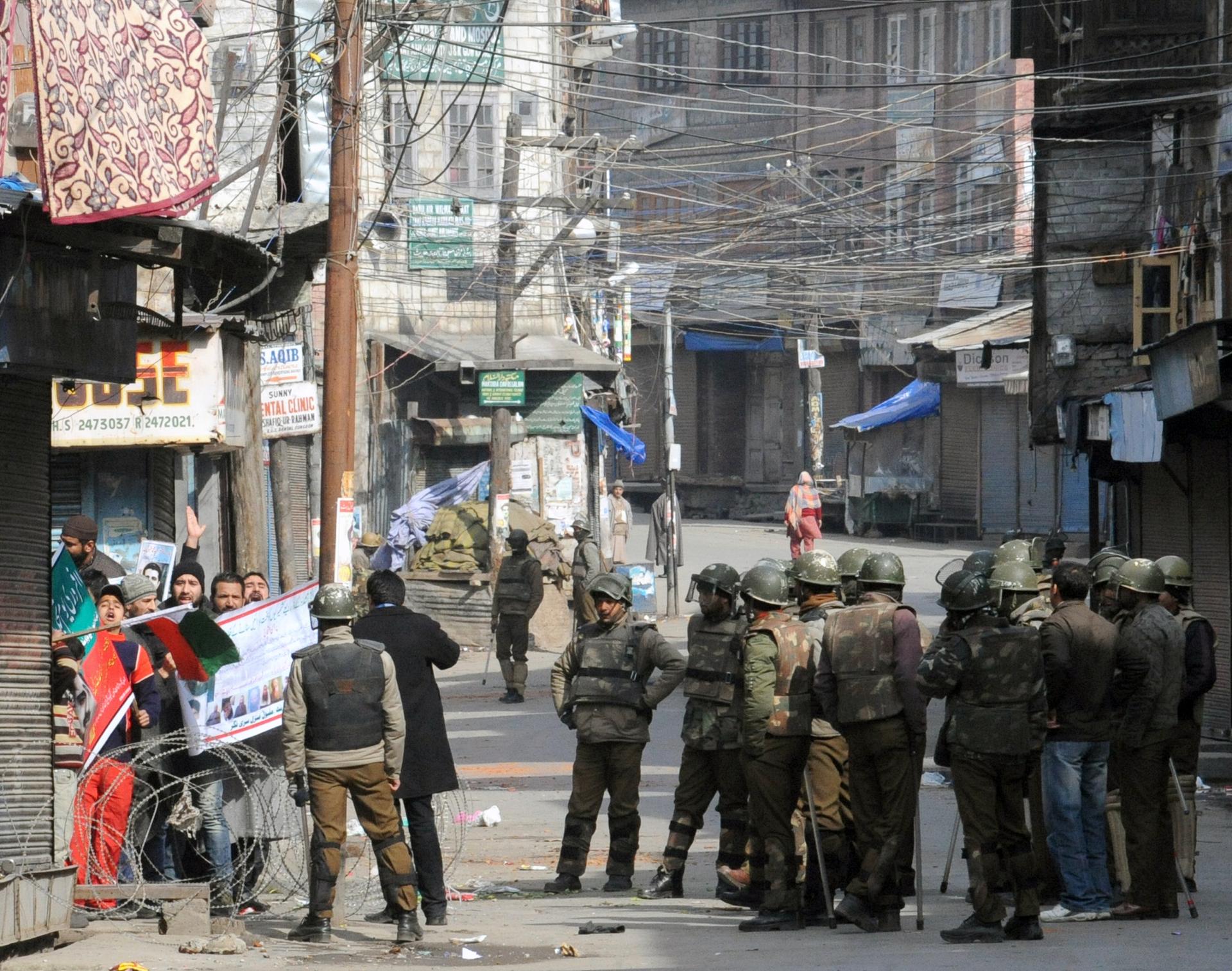Fresh cease-fire violations in Kashmir
Activists defy a curfew in Kashmir Valley on Feb. 11, 2013.
NEW DELHI, India — A Pakistani soldier was killed Friday in a clash on the Line of Control — the de facto border between the Indian and Pakistani portions of Kashmir — constituting fresh violations of the cease-fire there.
Pakistan claims the soldier "lost his way" and stumbled across the Line of Control, initiating the first major incident since the beheading of an Indian soldier nearly derailed the peace process on Jan. 8.
But at least one Indian military official has already called the man a "militant" and an "infiltrator" — terms that India uses to describe jehadis that it has long claims Pakistan's Inter-Services Intelligence agency employs in a proxy war meant to destabilize Indian-administered Kashmir.
According to G. Parthasarathy, a former Indian ambassador to Pakistan, that's essentially what the cease-fire on the Line of Control is all about.
As he told GlobalPost after the Jan. 8 violation, from India's point of view, when bullets fly on the Line of Control, they're providing covering fire for Pakistan-sponsored terrorists to cross over and wreak havoc.
GlobalPost's senior correspondent in India, Jason Overdorf, says the timing of this incident could prompt more violence.
The timing of this incident, which closely follows India's execution of convicted Kashmiri militant Afzal Guru on Saturday, could well mean that his death could become inspiration for another wave of just that sort of "militant" activity.
Afzal had been convicted of participating in 2001 attack on India's parliament, and many in Kashmir believe he did not receive a fair trial, the AP reported. He was secretly executed at a New Delhi jail on Feb. 9, the NY Times reported.
Cease-fire violations aren't out of the ordinary, according to Indian officials. Earlier this year, National Security Advisor Shivshankar Menon said Pakistan's cease-fire violations and infiltration attempts increased in 2012, compared with 2011.
In an attempt to prevent more violence, Indian officials re-imposed a curfew in most of the Kashmir Valley today, canceling Friday prayers at major mosques and ordering citizens to stay indoors, the Associated Press reported.
On Wednesday, authorities relaxed a curfew that had been in place for five days to curtail anti-India protests that erupted after Afzal Guru's execution. Protesters defied that curfew and clashed with police, resulting in three deaths and more than 100 detentions, the AP reported.
"These restrictions would not have been necessary if we didn't have amongst us those determined to create trouble out of this situation,” Jammu and Kashmir chief minister Omar Abdullah said on Twitter, according to the Hindustan Times.
Afzal was buried at the New Delhi jail, and his family is demanding that Indian officials return his body to his hometown of Sopore in Baramulla district for a proper burial, the New York Times reported.
Separatist leader Syed Ali Shah Geelani had called for a mass march to the Eidgah graveyard in Srinagar today to offer prayers for Afzal, the New York Times reported.
More from GlobalPost: Afzal Guru hanged in India for 2001 parliament attack
Jason Overdorf contributed to this report from New Delhi.
Every day, reporters and producers at The World are hard at work bringing you human-centered news from across the globe. But we can’t do it without you. We need your support to ensure we can continue this work for another year.
Make a gift today, and you’ll help us unlock a matching gift of $67,000!
